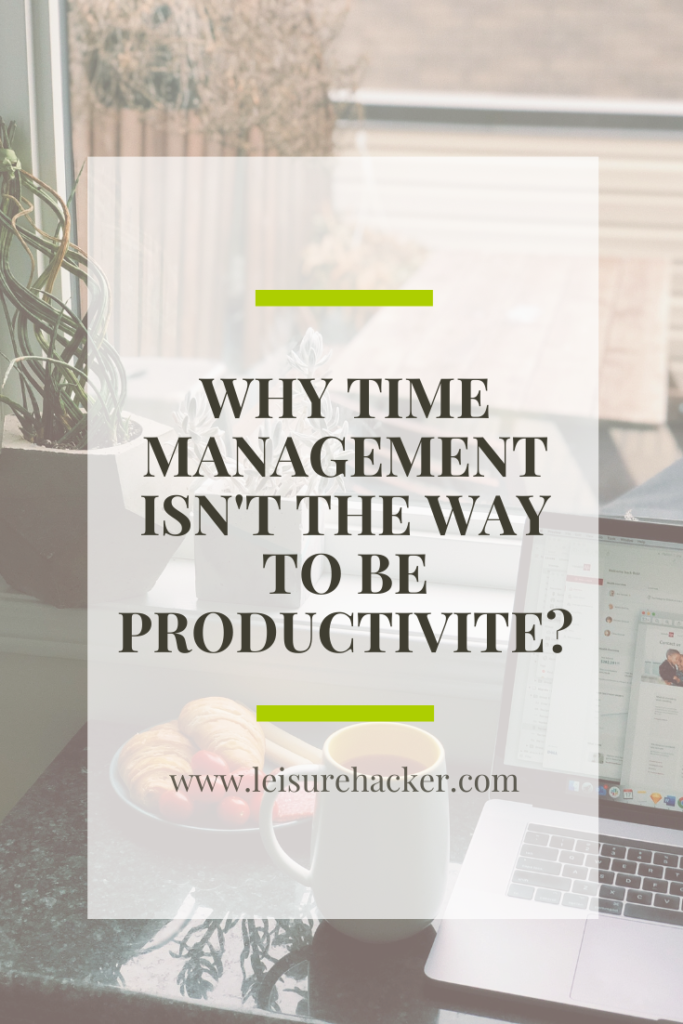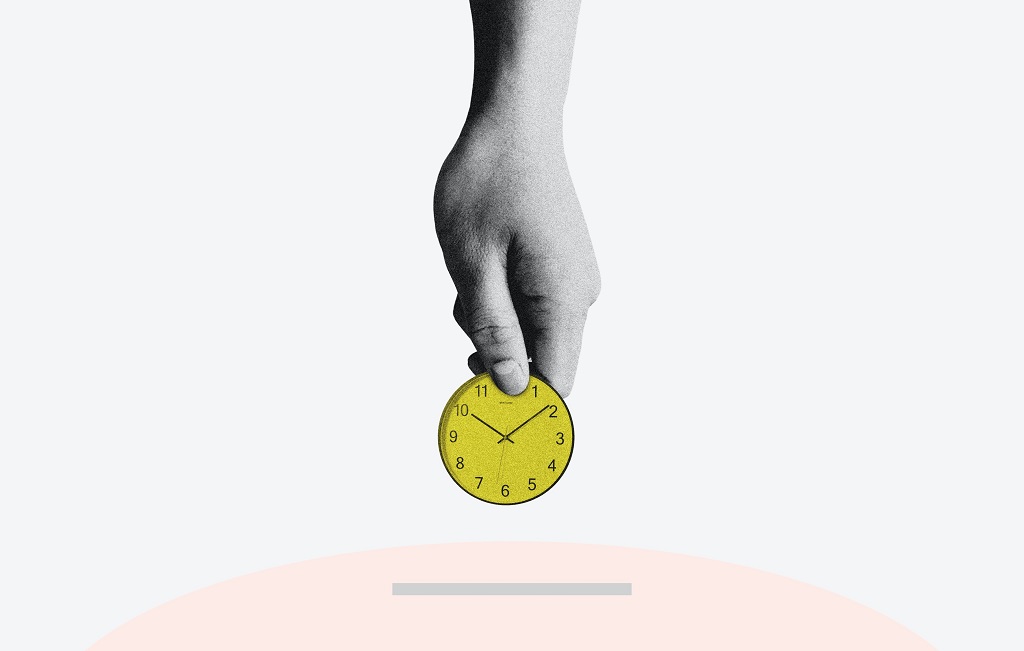Why Time Management Isn’t The Way To Be Productive?

March 1, 2021
We all strive to be our best, productive selves – getting the most out of our days, feeling accomplished and satisfies and most of us believe that time management is the golden ticket to our “4 hour work weeks” but unfortunately time management can be a total waste of time.

WHY time management isn’t the answer?
Time management may be a great system for robots or computers, but for us, modern humans – affected by our emotions and thoughts and countless distractions – this may not be the best solution.
We can have the best time blocking system EVER, but if we’re too tired, too anxious, overwhelmed, or distracted to perform at that set time – we’re not going to be very productive.
Also, time is a finite resource.
“There are a limited number of hours in the day, and focusing on time management makes us more aware of how many of those hours we waste,” Adam Grant, a professor at The Wharton School of business and an organizational psychologist, writes in The New York Times.
No matter how hard we try, a day will only have 24 hours.
We can try to manage our time, tasks, and our priorities, but if we want to be truly productive, we need to start managing ourselves – and to be prices, our physical, emotional, and mental energy; as mention by Tony Schwartz, the president and CEO of The Energy Project.
So how CAN we become more productive, you ask? Through mindful productivity.

I know – mindfulness and productivity sounds a bit counterintuitive initially – one is about pausing, being, breathing, and one is about going, doing, creating, right?
But mindfulness (as defined by the Oxford dictionary) is actually: a mental state achieved by focusing one’s awareness on the present moment while calmly acknowledging and accepting one’s feelings, thoughts, and bodily sensations.
And this is exactly what we need in order to increase our productivity.
When we turn off the autopilot of “doing” and are consciously present in what we do, noticing our emotions and our thoughts – we can learn to manage them in order to get the best results – reducing the feeling of stress, overwhelm, anxiety, and increasing creativity, focus, and happiness.
It doesn’t mean you can’t or shouldn’t manage your time, it just means it CAN’T be the only practice for productivity if you want to achieve consistent results without sacrificing your well-being.
Related: 13 hacks for a super productive week
My personal guidelines to mindful productivity:
1. awareness:
Deepen awareness of how your thoughts, feelings, and environment and start noticing your energy levels –
- What drains your energy? What/who makes you tired, stressed, emotionally overwhelmed? And when? These are the things you should be trying to avoid/reduce.
- What fills your energy? What/who makes you happy, creative, concentrated? And when? These are the things you should try to increase and prioritize.
2. Implementation
- Set the intention of managing your energy levels throughout your day/week/month and make it a priority no matter the external circumstances.
- Schedule energy-filling activities, rest, and self-care into your life. While we sleep, relax or play, our body reinvigorates itself and creates the energy reserves we need to perform at our best during the rest of the day. Without real rest or rejuvenation, we subconsciously (and sometimes knowingly) hold ourselves back because we know we need to “make it through the day.”
- Learn self-regulation tools and mindful practices to help you deal with emotions and thoughts as they arise and come back or create a state of optimal productivity.
3. Integration
Integrate these tools and habits into your daily life to create healthy habits and routines to support you in creating sustainable success without burnout.

Mindful productivity isn’t a product or a tool – it’s a flexible framework. You won’t find any one-size-fits-all getting at 5 am strategies here as I believe productivity is personal: there is no one BEST system, tool, or app – there’s a set of guidelines you can learn to apply yourself, creating a sustainable, happy, productive way to work.
What do you think? can we be productive by only managing our time?
If you need more support or want to learn more about mindful productivity – join our FREE community “from Grind to Groove”, follow me on IG or book a FREE 30-minute call with me.

Leave a Reply Cancel reply
GYST
*
My 3-step formula to increase productivity, reduce stress, and create more balance in a busy world.
*Get Your Sh*t Together:
A FREE Guide to Organizing Your Life
Get the free guide now!
From Task Overwhelm To Effortlessly Efficient
THE 5-DAY PRODUCTIVITY CHALLENGE TO ORGANIZE & PRIORITIZE YOUR TASKS
TELL ME MORE!
Say Goodbye to 'Task Chaos' and the feeling of never truly getting ahead, and say Hello to a more organized, focused, and accomplished you!
[…] Related: Why Time Management Isn’t The Way To Be Productive? […]
[…] is a symptom of the emotional problem. It’s not the problem itself”.So, we can apply all the time management techniques or use fancy time management apps, but if we don’t address the emotional issue, we’re not going […]
[…] is a symptom of the emotional problem. It’s not the problem itself”. So, we can apply all the time management techniques or use fancy time management apps, but if we don’t address the emotional issue, we’re not going […]